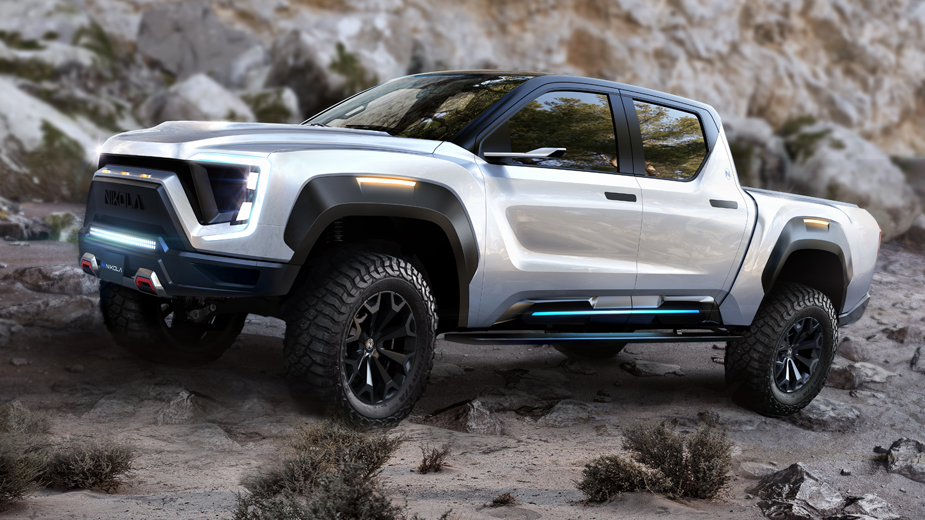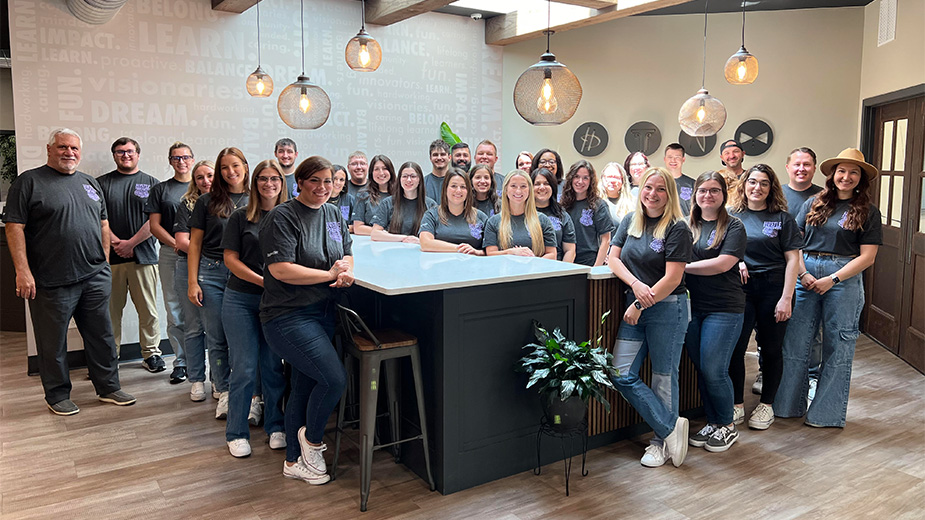GM Takes $2B Stake in Startup Nikola, Will Provide Ultium Batteries
DETROIT, Mich. – General Motors has taken a $2 billion stake in electric-vehicle automaker Nikola. As part of the deal, GM will engineer and manufacture Nikola’s Badger pickup truck and provide the startup with Ultium batteries.
The Ultium batteries will be sourced from the battery plant in Lordstown once operations begin there in 2022. The Badger, a consumer pickup truck, will use a combination of the batteries hydrogen fuel cells, which will also come from GM, for power.
The Badger will have a range between 300 and 600 miles, depending on whether the particular vehicle is solely powered by hydrogen cells or comes with an Ultium battery pack addition. According to Nikola, the truck has 906 horsepower and 980 pound-feet of torque.
At the Regional Economic Development Summit at Youngstown State University last week, Ultium plant manager Tom Gallagher said construction work is on schedule. If all stays on pace, equipment will be installed in the third quarter of 2021, he said.
Through the deal, which provides GM an 11% stake in the startup, Nikola expects to save more than $4 billion in battery and transmission costs and $1 billion in engineer and validation costs. The deal is expected to close by the end of the month.
GM’s return, meanwhile, is projected to be more than $4 billion across the equity value of shares, contract manufacturing for the Badger, supply contracts for the Ultium batters and Hydrotec hydrogen fuel cells. General Motors will also be the exclusive supplier of fuel cells for Nikola’s Class 7 and 8 trucks – those with weight capacities above 26,001 pounds – globally, with the exception of European markets.
“Nikola is one of the most innovative companies in the world. General Motors is one of the top engineering and manufacturing companies in the world. You couldn’t dream of a better partnership than this,” said Nikola founder and chairman Trevor Milton in a statement.
In addition to the Badger, Nikola is also working on two electric-powered semi models – the One and Two – and offroad vehicle, the NZT. While Nikola is developing electrified pickup truck models, it’s likely not yet a competitor with Lordstown Motors, which operates out of the former GM Lordstown Assembly adjacent to the new Ultium plant site, as the latter is targeting the commercial fleet market, rather than everyday drivers that Nikola is targeting with the Badger.
“This strategic partnership with Nikola, an industry leading disrupter, continues the broader deployment of General Motors’ all-new Ultium battery and Hydrotec fuel cell systems,” said General Motors CEO Mary Barra. “We are growing our presence in multiple high-volume EV segments while building scale to lower battery and fuel cell costs and increase profitability. In addition, applying General Motors’ electrified technology solutions to the heavy-duty class of commercial vehicles is another important step in fulfilling our vision of a zero-emissions future.”
In March, GM announced a $20 billion commitment to converting its entire lineup to electric-powered vehicles, include 20 electric models available by 2023. Part of that investment has been $2.2 billion to refit its Detroit-Hamtramck plant to produce autonomous and electric vehicles, as well as the $2.3 billion Lordstown Ultium battery plant.
The Ultium battery platform, developed as part of a joint venture between GM and LG Chem, will also be used in Honda vehicles. In early September, the two automakers announced they had signed a deal to research and design both electric-powered and internal combustion engine vehicles together. The resulting vehicles, the companies said in a statement will be “sold under each company’s distinct brands.” Honda will also use Ultium batteries in two of its own vehicles.
Pictured: The Nikola Badger pickup truck.
Copyright 2024 The Business Journal, Youngstown, Ohio.


